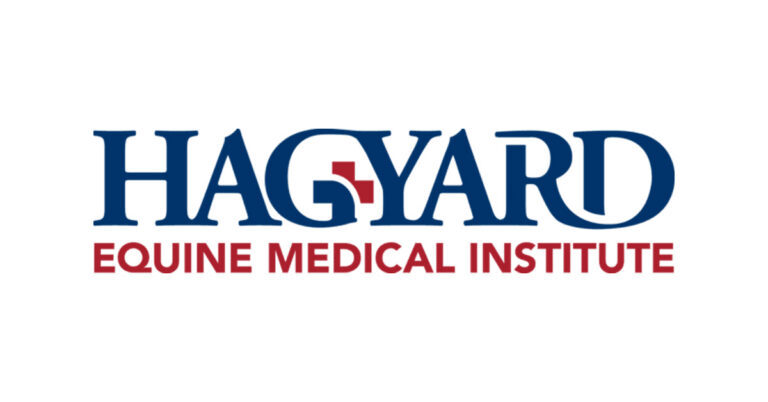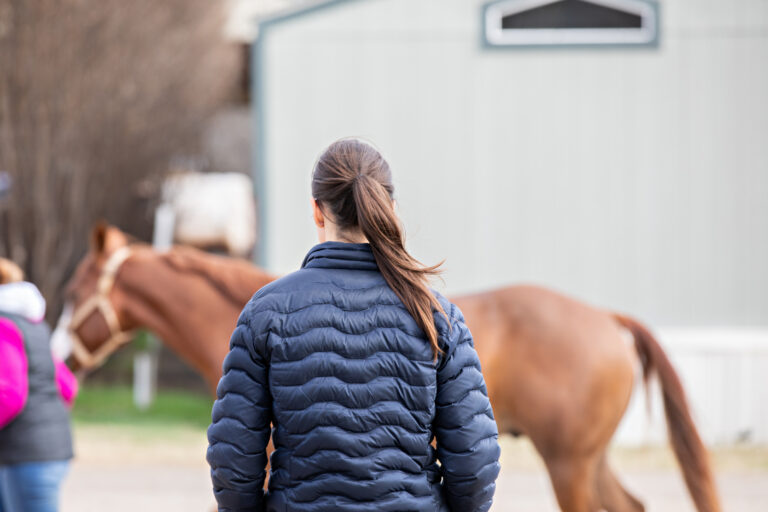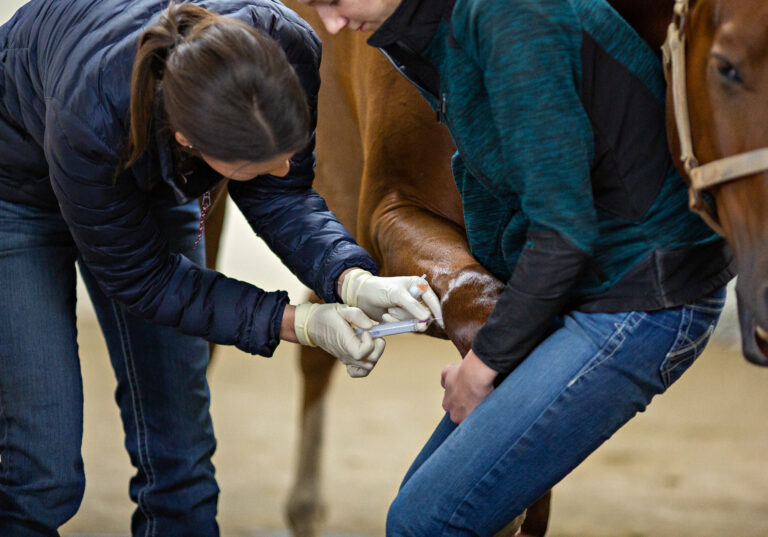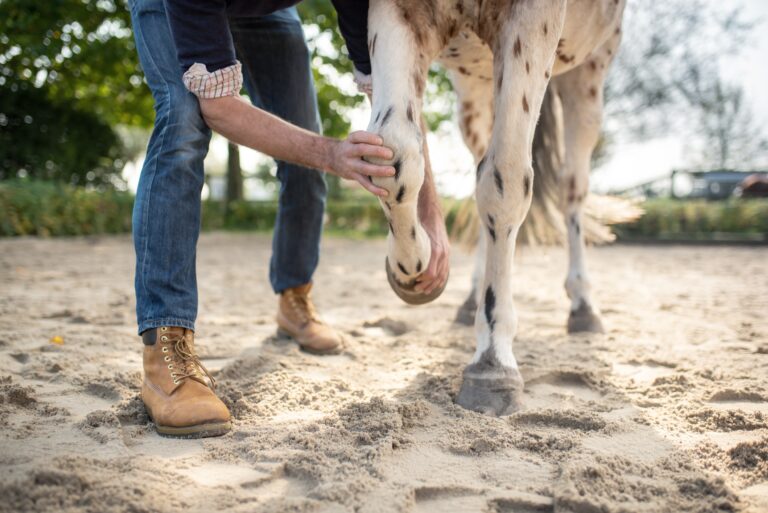
Do you know the difference between probiotics and prebiotics? Have you used fecal microbiota transplantation (FMT)? Have you heard of dysbiosis (also called dysbacteriosis), a term for a microbial imbalance or maladaptation on or inside the body, such as an impaired microbiota?
Medical researchers for humans and animals are looking more at how the microbes of the gut contribute to or detract from the overall health of the host.
In Episode 37 of the Disease Du Jour podcast, brought to you in 2020 by Merck Animal Health, Marcio Costa, DVM, PhD, an Assistant Professor in the Department of Veterinary Biomedical Sciences at the University of Montreal, talked about the equine microbiome.
EquiManagement’s Disease Du Jour podcast is focused on equine research and current best practices. Disease Du Jour is brought to you in 2020 by Merck Animal Health.
Costa earned his degree in Veterinary Medicine in Brazil and moved to Canada to complete his residency in Large Animals Internal Medicine at the University of Guelph. He completed his PhD in 2014, using next generation sequencing to investigate factors affecting the intestinal microbiome of horses. His research is focused on microbiome manipulation to improve the health of domestic animals.
“What is the normal microbiota for a horse,” questioned Costa in the podcast. “Animals in the wild have more diversity in their microbiomes,” he noted. “Do we need to have more diversity in the horse microbiome?”
Topics discussed:
- What is the microbiome and why is it important to horse health?
- What do veterinarians need to know about the equine microbiome to help horses stay healthy or regain health?
- How can veterinarians apply information about the microbiome when treating horses?
- Recent research?
We invite you to download, listen to and rate previous and future episodes of Disease Du Jour on iTunes, SoundCloud, Stitcher or your favorite podcast platform.

Previous Episodes of Disease Du Jour
If you missed any of the previous episodes of Disease Du Jour, feel free to go back and catch up!
Episode 36 – Maureen Long, DVM, PhD, DACVIM, talks about West Nile Virus in Horses and has a bonus webinar.
Episode 35 – Wendy Vaala, VMD, DACVIM, a senior technical services veterinarian with Merck Animal Health, discusses Equine Influenza.
Episode 34 – Chrissie Schneider, DVM, MS, DABVP, gives some tips and opinions about How to Talk to Horse Owners About Vaccination and how to reclaim vaccinations from the do-it-yourselfers.
Episode 33 – Tom Divers, DVM, DACVIM, DACVECC, talks about Tick-Borne Diseases in Horses while focusing on Lyme disease.
Episode 32 – Alan Dorton, DVM, talks about Thermochips for Horses, which are microchips that read body temperature through a smartphone app.
Episode 31 – Earl Gaughan, DVM, DACVS, of Merck Animal Health, talks about Equine Wounds from a Veterinarian’s Perspective.
Episode 30 – Duane Chappell, DVM, of Merck Animal Health, talks about the Unwanted Horse Veterinary Relief Campaign (UHVRC).
Episode 29 – Louise Southwood, BSc (Vet), BVSc, MS, PhD, talks about Equine Colic from a Veterinarian’s Perspective. Southwood is a Professor of Emergency Medicine and Critical Care at the University of Pennsylvania School of Veterinary Medicine.
Episode 28 – Wendy Vaala, VMD, DACVIM, a senior technical services veterinarian with Merck Animal Health, discusses parasite control in young horses.
Episode 27 – Nicola Pusterla,DVM, PhD, DACVIM, DAVDC-Equine. He is a professor of equine internal medicine and dentistry at the University of California, Davis, School of Veterinary Medicine, talks about The Latest on EPM.
Episode 26 – Scott Weese, DVM, DVSc (Guelph), DACVIM, a professor at the University of Guelph’s Ontario Veterinary College, talks about veterinarian biosecurity and the COVID-10 pandemic.
Episode 25 – Christine Royal, DVM, DDJ, Director of Professional Services for Merck Animal Health’s companion animal and equine business, talks about veterinarian wellness from the joint Merck/AVMA survey results.
Episode 23 – Nicholas Pusterla, DVM, PhD, DACVIM, DAVDC-Equine, from the University of California, Davis, on Equine Coronavirus.
Episode 22 – Nathaniel A. White II, DVM, MS, DACVS, on the Equine Disease Communication Center.
Episode 21 – Steve O’Grady, DVM, MRCVS, a farrier with 40 years of experience who owns Virginia Therapeutic Farriery, on White Line Disease.
Episode 20 – Rick Mitchell, DVM, MRCVS, DACVSMR, Certified ISELP member, of Fairfield Equine Associates in Newtown, Connecticut, on Joint Injections.
Episode 19 – Duncan Peters, DVM, DACVSMR, Certified ISELP Member and co-owner of East-West Equine Sports Medicine in Lexington, Kentucky, talks about equine tendon and ligament injuries and treatments.
Episode 18 – Tracy Turner, DVM, MS, ACVS, ACVSMR, Fellow American Academy of Thermology, owner of Turner Equine Sports Medicine and Surgery, talks about the Equitarian Initiative.
Episode 17 – Robert Holland, DVM PhD, who is in private practice in Kentucky, talks about equine strangles.
Episode 16 – Craig Barnett, DVM, Director of the Equine Veterinary Professional Services segment at Merck Animal Health, talks about the Merck Equine Respiratory Biosurveillance program and what it means to veterinarians, researchers and the horse industry.
Episode 15 – Raul Bras, Raul Bras, DVM, CJF (Certified Journeyman Farrier), a shareholder in Rood and Riddle Equine Hospital in Lexington, Kentucky, talks about veterinarian-farrier relationships. Bras’ professional focus is on equine podiatry, and he travels from his home base in Lexington throughout the country and the world. He is the 2019 president of the Northeast Association of Equine Practitioners.
Episode 14 – Angela Pelzel-McCluskey, DVM, MS, is a National Equine Epidemiologist for the United States Department of Agriculture (USDA), Animal and Plant Health Inspection Service (APHIS), Veterinary Services. She discussed equine infectious anemia (EIA).
Episode 13 – Michele L. Frazer, DVM, DACVIM, DACVECC, is an Associate veterinarian at Hagyard Equine Medical Institute in Lexington, Kentucky. She discussed diarrhea in adult horses and foals.
Episode 12 – Jack Easley, DVM, MS, DABVP, DAVDC (Eq), is the owner of Easley Equine Dentistry based in Shelbyville, Kentucky. Easley talks about how much has changed in equine dentistry, the wide variety of dental diseases horses can have, the need for a good dental exam with the right tools, the use of radiographs, and what horse owners expect today in equine dental care.
Episode 11 – This episode—featuring Drs. Ernie Bailey of the Gluck Equine Research Center at the University of Kentucky, and Samantha Brooks of the University of Florida—covers the topic of Genes as Management Tools. We discuss how genetics touches equine veterinarians on a day-to-day basis; adaptation and evolution; fragile foal syndrome; OCD; roaring; reproduction; and infectious disease.
Episode 10 – Angela Pelzel-McCluskey, DVM, MS, who is a National Equine Epidemiologist for the United States Department of Agriculture (USDA), Animal and Plant Health Inspection Service (APHIS), Veterinary Services, discusses vesicular stomatitis virus (VSV).
Episode 9 – Kent Allen, DVM, owner of Virginia Equine Imaging in Middleburg, Virginia, and co-founder of ISELP, discusses lameness diagnosis and ISELP.
Episode 8 – Roberta Dwyer, DVM, MS, DACVPM (epidemiology specialty), discusses biosecurity factors that equine veterinarians need to understand in order to best prevent and control disease spread on client farms.
Episode 7 – Martin Nielsen, DVM, PhD, DipEVPC, DACVM, one of the world’s leading equine parasitology researchers who is an associate professor at the University of Kentucky’s Maxwell H. Gluck Equine Research Center. Nielsen discusses equine parasites and the value of checking the efficacy of dewormers; the evolution of parasites and the science surrounding them; recent papers on parasite modeling; evaluating parasite control programs, combination deworming practices and the science behind them—good and bad.
Episode 6 – Peter Timoney, MVB, MS, PhD, FRCVS, the Frederick Van Lennep Chair in Equine Veterinary Science and a Professor at the Gluck Equine Research Center at the University of Kentucky. Timoney discusses equine infectious diseases, with a focus on factors that compromise normal pregnancy and the adolescent horse.
Episode 5 – Robert Holland, DVM, PhD, a private practice veterinarian in the Central Kentucky area focusing on respiratory problems and infectious diseases, talks about Respiratory Tips from the Field.
Episode 4 – Bonnie Barr, VMD, DACVIM, an internal medicine specialist at Rood and Riddle Equine Hospital in Kentucky, talks about common neonatal problems in this podcast.
Episode 3 – Tom Chambers, PhD, who heads the OIE Reference Laboratory for equine influenza at the University of Kentucky, discusses equine influenza.
Episode 2 – Tom Riddle, DVM, DACT (hon), a founding partner of Rood and Riddle Equine Hospital in Lexington, Kentucky, discusses breeding season procedures that he has developed over his decades-long practice.
Episode 1 – Steve Reed, DVM, DACVIM, of Rood and Riddle Equine Hospital in Lexington, Kentucky, discusses equine herpesvirus and equine herpesvirus myeloencephalopathy.

EquiManagement’s Disease Du Jour podcast is focused on equine research and current best practices. Disease Du Jour is brought to you in 2020 by Merck Animal Health.

Do you know the difference between probiotics and prebiotics? Have you used fecal microbiota transplantation (FMT)? Have you heard of dysbiosis (also called dysbacteriosis), a term for a microbial imbalance or maladaptation on or inside the body, such as an impaired microbiota?
Medical researchers for humans and animals are looking more at how the microbes of the gut contribute to or detract from the overall health of the host.
In Episode 37 of the Disease Du Jour podcast, brought to you in 2020 by Merck Animal Health, Marcio Costa, DVM, PhD, an Assistant Professor in the Department of Veterinary Biomedical Sciences at the University of Montreal, talked about the equine microbiome.
EquiManagement’s Disease Du Jour podcast is focused on equine research and current best practices. Disease Du Jour is brought to you in 2020 by Merck Animal Health.
Costa earned his degree in Veterinary Medicine in Brazil and moved to Canada to complete his residency in Large Animals Internal Medicine at the University of Guelph. He completed his PhD in 2014, using next generation sequencing to investigate factors affecting the intestinal microbiome of horses. His research is focused on microbiome manipulation to improve the health of domestic animals.
“What is the normal microbiota for a horse,” questioned Costa in the podcast. “Animals in the wild have more diversity in their microbiomes,” he noted. “Do we need to have more diversity in the horse microbiome?”
Topics discussed:
- What is the microbiome and why is it important to horse health?
- What do veterinarians need to know about the equine microbiome to help horses stay healthy or regain health?
- How can veterinarians apply information about the microbiome when treating horses?
- Recent research?
We invite you to download, listen to and rate previous and future episodes of Disease Du Jour on iTunes, SoundCloud, Stitcher or your favorite podcast platform.

Previous Episodes of Disease Du Jour
If you missed any of the previous episodes of Disease Du Jour, feel free to go back and catch up!
Episode 36 – Maureen Long, DVM, PhD, DACVIM, talks about West Nile Virus in Horses and has a bonus webinar.
Episode 35 – Wendy Vaala, VMD, DACVIM, a senior technical services veterinarian with Merck Animal Health, discusses Equine Influenza.
Episode 34 – Chrissie Schneider, DVM, MS, DABVP, gives some tips and opinions about How to Talk to Horse Owners About Vaccination and how to reclaim vaccinations from the do-it-yourselfers.
Episode 33 – Tom Divers, DVM, DACVIM, DACVECC, talks about Tick-Borne Diseases in Horses while focusing on Lyme disease.
Episode 32 – Alan Dorton, DVM, talks about Thermochips for Horses, which are microchips that read body temperature through a smartphone app.
Episode 31 – Earl Gaughan, DVM, DACVS, of Merck Animal Health, talks about Equine Wounds from a Veterinarian’s Perspective.
Episode 30 – Duane Chappell, DVM, of Merck Animal Health, talks about the Unwanted Horse Veterinary Relief Campaign (UHVRC).
Episode 29 – Louise Southwood, BSc (Vet), BVSc, MS, PhD, talks about Equine Colic from a Veterinarian’s Perspective. Southwood is a Professor of Emergency Medicine and Critical Care at the University of Pennsylvania School of Veterinary Medicine.
Episode 28 – Wendy Vaala, VMD, DACVIM, a senior technical services veterinarian with Merck Animal Health, discusses parasite control in young horses.
Episode 27 – Nicola Pusterla,DVM, PhD, DACVIM, DAVDC-Equine. He is a professor of equine internal medicine and dentistry at the University of California, Davis, School of Veterinary Medicine, talks about The Latest on EPM.
Episode 26 – Scott Weese, DVM, DVSc (Guelph), DACVIM, a professor at the University of Guelph’s Ontario Veterinary College, talks about veterinarian biosecurity and the COVID-10 pandemic.
Episode 25 – Christine Royal, DVM, DDJ, Director of Professional Services for Merck Animal Health’s companion animal and equine business, talks about veterinarian wellness from the joint Merck/AVMA survey results.
Episode 23 – Nicholas Pusterla, DVM, PhD, DACVIM, DAVDC-Equine, from the University of California, Davis, on Equine Coronavirus.
Episode 22 – Nathaniel A. White II, DVM, MS, DACVS, on the Equine Disease Communication Center.
Episode 21 – Steve O’Grady, DVM, MRCVS, a farrier with 40 years of experience who owns Virginia Therapeutic Farriery, on White Line Disease.
Episode 20 – Rick Mitchell, DVM, MRCVS, DACVSMR, Certified ISELP member, of Fairfield Equine Associates in Newtown, Connecticut, on Joint Injections.
Episode 19 – Duncan Peters, DVM, DACVSMR, Certified ISELP Member and co-owner of East-West Equine Sports Medicine in Lexington, Kentucky, talks about equine tendon and ligament injuries and treatments.
Episode 18 – Tracy Turner, DVM, MS, ACVS, ACVSMR, Fellow American Academy of Thermology, owner of Turner Equine Sports Medicine and Surgery, talks about the Equitarian Initiative.
Episode 17 – Robert Holland, DVM PhD, who is in private practice in Kentucky, talks about equine strangles.
Episode 16 – Craig Barnett, DVM, Director of the Equine Veterinary Professional Services segment at Merck Animal Health, talks about the Merck Equine Respiratory Biosurveillance program and what it means to veterinarians, researchers and the horse industry.
Episode 15 – Raul Bras, Raul Bras, DVM, CJF (Certified Journeyman Farrier), a shareholder in Rood and Riddle Equine Hospital in Lexington, Kentucky, talks about veterinarian-farrier relationships. Bras’ professional focus is on equine podiatry, and he travels from his home base in Lexington throughout the country and the world. He is the 2019 president of the Northeast Association of Equine Practitioners.
Episode 14 – Angela Pelzel-McCluskey, DVM, MS, is a National Equine Epidemiologist for the United States Department of Agriculture (USDA), Animal and Plant Health Inspection Service (APHIS), Veterinary Services. She discussed equine infectious anemia (EIA).
Episode 13 – Michele L. Frazer, DVM, DACVIM, DACVECC, is an Associate veterinarian at Hagyard Equine Medical Institute in Lexington, Kentucky. She discussed diarrhea in adult horses and foals.
Episode 12 – Jack Easley, DVM, MS, DABVP, DAVDC (Eq), is the owner of Easley Equine Dentistry based in Shelbyville, Kentucky. Easley talks about how much has changed in equine dentistry, the wide variety of dental diseases horses can have, the need for a good dental exam with the right tools, the use of radiographs, and what horse owners expect today in equine dental care.
Episode 11 – This episode—featuring Drs. Ernie Bailey of the Gluck Equine Research Center at the University of Kentucky, and Samantha Brooks of the University of Florida—covers the topic of Genes as Management Tools. We discuss how genetics touches equine veterinarians on a day-to-day basis; adaptation and evolution; fragile foal syndrome; OCD; roaring; reproduction; and infectious disease.
Episode 10 – Angela Pelzel-McCluskey, DVM, MS, who is a National Equine Epidemiologist for the United States Department of Agriculture (USDA), Animal and Plant Health Inspection Service (APHIS), Veterinary Services, discusses vesicular stomatitis virus (VSV).
Episode 9 – Kent Allen, DVM, owner of Virginia Equine Imaging in Middleburg, Virginia, and co-founder of ISELP, discusses lameness diagnosis and ISELP.
Episode 8 – Roberta Dwyer, DVM, MS, DACVPM (epidemiology specialty), discusses biosecurity factors that equine veterinarians need to understand in order to best prevent and control disease spread on client farms.
Episode 7 – Martin Nielsen, DVM, PhD, DipEVPC, DACVM, one of the world’s leading equine parasitology researchers who is an associate professor at the University of Kentucky’s Maxwell H. Gluck Equine Research Center. Nielsen discusses equine parasites and the value of checking the efficacy of dewormers; the evolution of parasites and the science surrounding them; recent papers on parasite modeling; evaluating parasite control programs, combination deworming practices and the science behind them—good and bad.
Episode 6 – Peter Timoney, MVB, MS, PhD, FRCVS, the Frederick Van Lennep Chair in Equine Veterinary Science and a Professor at the Gluck Equine Research Center at the University of Kentucky. Timoney discusses equine infectious diseases, with a focus on factors that compromise normal pregnancy and the adolescent horse.
Episode 5 – Robert Holland, DVM, PhD, a private practice veterinarian in the Central Kentucky area focusing on respiratory problems and infectious diseases, talks about Respiratory Tips from the Field.
Episode 4 – Bonnie Barr, VMD, DACVIM, an internal medicine specialist at Rood and Riddle Equine Hospital in Kentucky, talks about common neonatal problems in this podcast.
Episode 3 – Tom Chambers, PhD, who heads the OIE Reference Laboratory for equine influenza at the University of Kentucky, discusses equine influenza.
Episode 2 – Tom Riddle, DVM, DACT (hon), a founding partner of Rood and Riddle Equine Hospital in Lexington, Kentucky, discusses breeding season procedures that he has developed over his decades-long practice.
Episode 1 – Steve Reed, DVM, DACVIM, of Rood and Riddle Equine Hospital in Lexington, Kentucky, discusses equine herpesvirus and equine herpesvirus myeloencephalopathy.

EquiManagement’s Disease Du Jour podcast is focused on equine research and current best practices. Disease Du Jour is brought to you in 2020 by Merck Animal Health.




